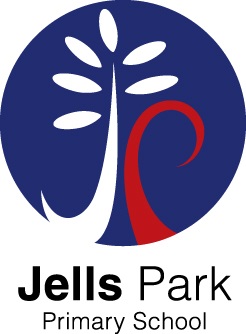Cyber Safety
At Jells Park Primary school we use many digital technologies and recognise the importance of explicitly teaching students how to be responsible digital citizens and keep themselves safe online. We teach and learn about many cybersafe practices and utilise stringent networking tools to filter and monitor internet usage. Below is some information about how you make your home into a cybersafe environment.
Home Network Strategies
At JPPS we always encourage responsible use of the Internet at all times. At school students access the Internet via a secure filtered connection and are limited to use within supervised environments. At home, the following measures are recomended to ensure safe and productive use of technology.
Internet connected technology in supervised areas, never in bedrooms
Become familiar with your router and learn how to change the password
Consider setting up a filter (see links below)
Keep a dialogue with your child about cybersafety expectations
Encourage your child to speak to you if they are uncomfortable about something that they have read or seen online, never make them feel like they will be 'in trouble'
Below are some links to very useful websites providing information about home network filtering.
Cyber Bullying
At Jells Park Primary School we are active in teaching and learning positive online behaviour and cybersafety strategies.
Key messages are...
'Don't say anything to someone online that you wouldn't say in person'
It is important for students to realise that the internet is a community and that they need to be a responsible member of that community in the same way that they are a member of any other community. It is also important to note that online bullying is easily recorded and consequences can include disciplinary action at school and, in extreme cases, legal action.
'If you think you are being cyber bullied, record the incident and tell an adult'
Students need to know that they do not have to deal with cyber bullying alone. If they feel they are being bullied via online chat such as messaging etc., they can take a screenshot of the conversation on their iPad and refer the matter to a teacher or parent.
Here is a link to the Federal Government's new eSaftey Website
Here is a link to another useful Cyberbullying resource for further information.
Digital Reputation
Digital Reputation is all about the permanency of things we put online and the difference between having a conversation in person and having one online.
The following are our primary messages…
“Anything you put on the Internet is there forever.”
Students need to be aware that when they have a conversation with their mouths, their words disappear as soon as they are spoken. However, on the Internet, those words are recorded forever. A good question to ask is “Would you like to have someone follow you around with a video camera recording every conversation you have with your friends?” A follow up question could be “why not?” and then you can compare the scenario to that of an internet chat session.
“Even if you think it’s private, the other person has now got your message and can do whatever they like with it”
Students need to be aware that even if they think they are sending a private message to another person, that person is able to take a screenshot of the message and may use it in a negative way.
It is also interesting to note that a lot of students see ‘the Internet’ as being only the actual WEBSITES they access from their browser (Safari, Internet Explorer, Firefox etc.)
It is important to clarify with them that ‘the Internet’ can include iPad apps, Video games, skype, instant messaging services and anything else that sends or receives things from their device to or from another. So these messages actually apply to all those things!
Other Useful Websites
Common Sense Media
An excellent tool for reviewing the suitability of different media including apps, video games, TV programs and movies. Reviews and ratings by parents and professionals.
Susan McLean - Australia’s foremost expert in the area of cyber safety and was a member of Victoria Police for 27 years. Widely known as the ‘cyber cop’ she was the first Victoria Police Officer appointed to a position involving cyber safety and young people. In 2003 she was the Victoria Police Region Four Youth Officer of the Year. She has also been awarded The National Medal and the Victoria Police Service Medal and 2nd Clasp, and the National Police Medal.
Online Safety Resources

